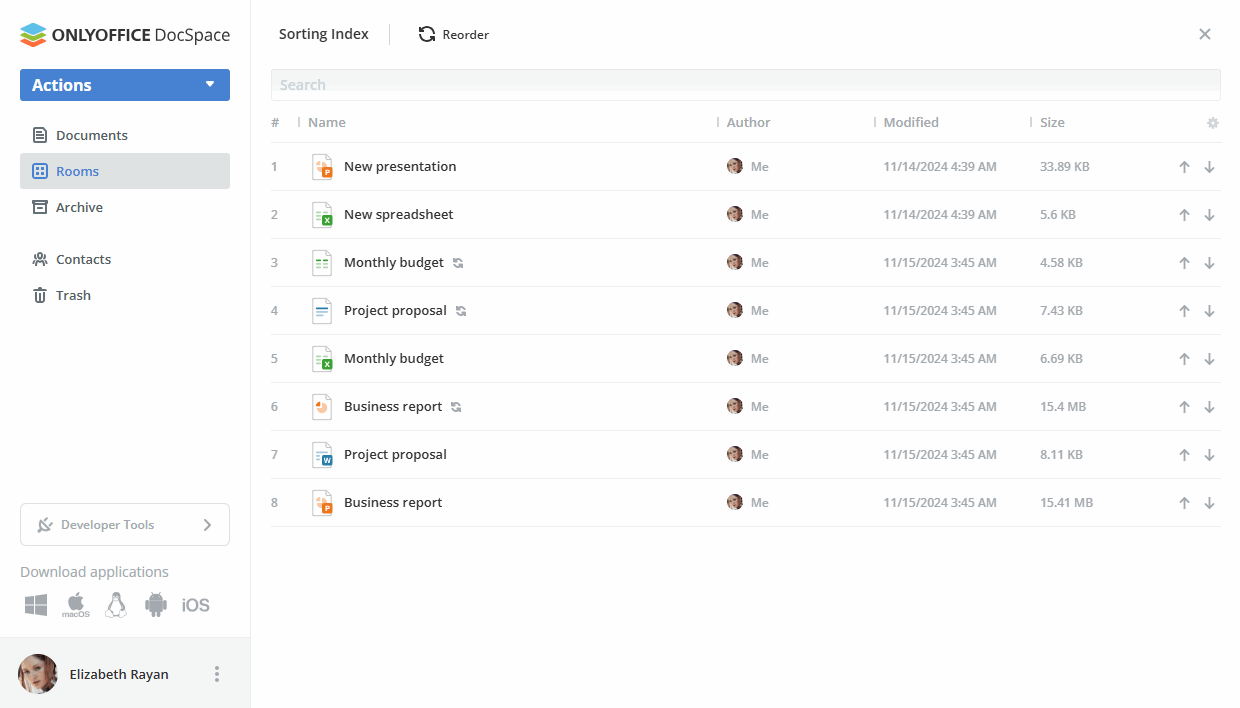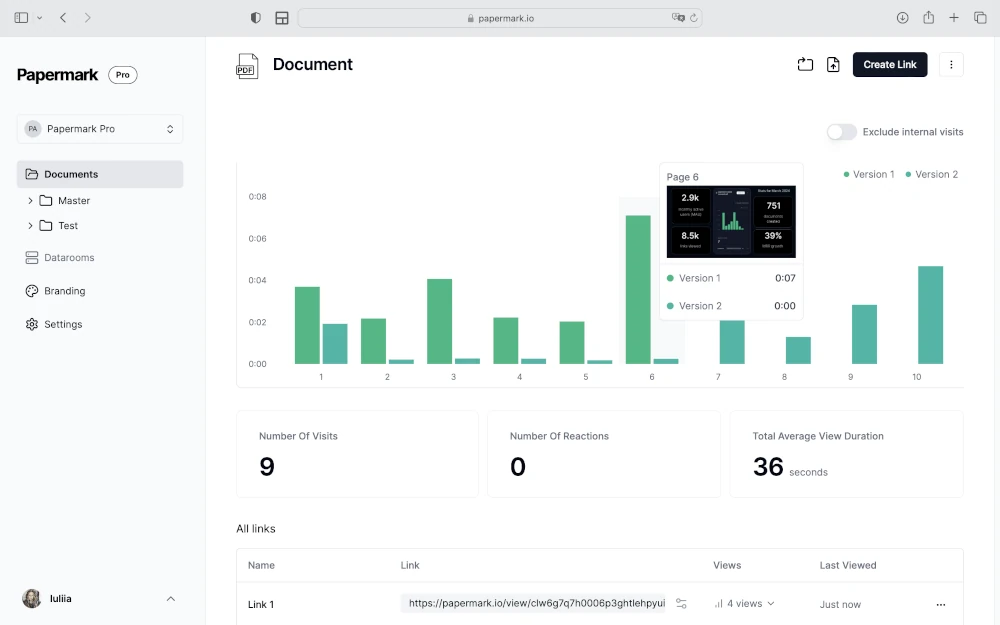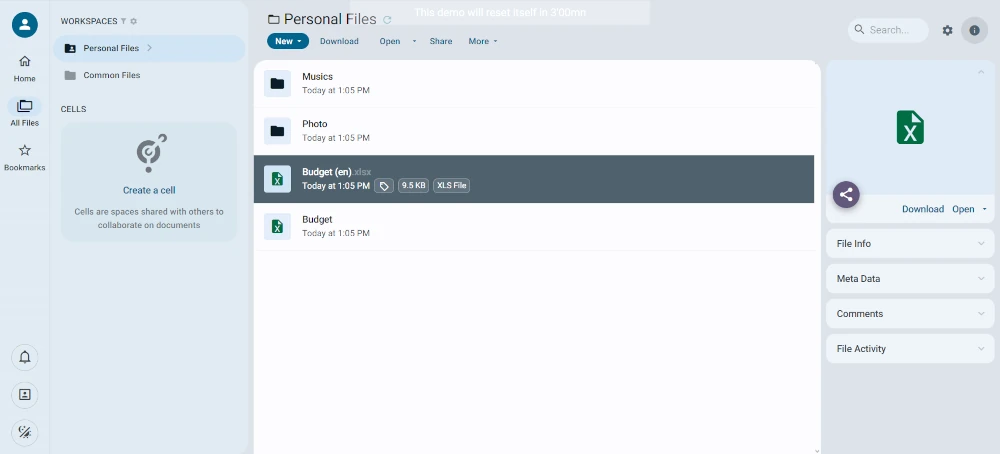A virtual data room, commonly known as VDR, is a feature that allows users to store, share, and access office documents and other important content in a safe environment.
Using it, one can share confidential information with whoever they need, including their colleagues, employees, investors, clients, and third parties, in a more centralized and secure manner than sending emails with attached files.
The main objective of a VDR is to prevent unauthorized access to critical documents and data while keeping them always accessible to authorized users.
Although there are plenty of VDR software providers that offer various services, the majority of popular virtual data room platforms are cloud-based.
Nevertheless, Linux users have some decent options to choose from that they can deploy locally on their servers and enjoy all the benefits of VDRs without sharing their data with cloud providers.
In this article, you will find the top 3 virtual data room solutions, available for on-premises deployment on Linux. Importantly, all picks are open-source.
Benefits of VDRs for Linux Users
Contents
Virtual data rooms are mainly used for financial transactions, legal document workflows, corporate management, and other business processes that require the highest level of security and data privacy.
Thanks to the specific nature of VDRs, they offer multiple advantages that enhance security and boost productivity. Here is a brief overview of what virtual data rooms generally provide:
- Advanced Security – VDRs put an emphasis on data security and confidentiality so tools like data encryption, flexible access permissions, user roles and limited file lifetime are quite common in such platforms. When configured and used in a proper manner, a virtual data room can ensure your files are stored in a safe place.
- More Efficient Collaboration. – VDR platforms can significantly improve collaboration processes among teams and third parties, no matter where they are located physically. Built-in features like real-time notifications, expiring links and document co-editing tools help everyone keep their finger on the pulse and be on the same wavelength when working on an important project.
- Improved Document Management – VDRs completely replace traditional physical data rooms, which reduces printing and administrative costs. All sensitive information is stored within the private network, and tools like automatic indexing, tags and filtering make it easier to search for the required file and maintain it accessible.
- Enhanced Accessibility – Deployed on a private server, VDRs can be easily accessed from any location if you have an internet connection, which means that other people and you can collaborate together and access the same files regardless of where you are located.
Now that you know what the virtual data room concept means, let’s take a look at some of the best self-hosted platforms of this kind for Linux users.
1. ONLYOFFICE DocSpace
ONLYOFFICE DocSpace is a GDRP-compliant open-source document management platform with collaborative features, which is available for deployment in the cloud or on a local Linux server using various options, including Docker and DEB/RPM packages.
ONLYOFFICE DocSpace is a room-based document storage environment that allows teams and businesses to store, manage, and collaborate on text documents, spreadsheets, presentations, digital forms, and PDFs.
Another advantage is the integrated AI assistant based on ChatGPT which generates texts and images, looks up information, extracts keywords, creates text summaries, translate,s and finds synonyms with a few clicks.

In ONLYOFFICE DocSpace, users can create rooms of different types depending on their purpose. Each DocSpace room implies specific levels of access permissions that can be granted to anyone, and a flexible system of user roles for better access management.
The VDR room type has been available in ONLYOFFICE DocSpace since version 3.0. VDRs in DocSpace guarantee secure document storage and handling of confidential information.
When working in a virtual data room, you can activate automatic indexing, keep track of all content being modified by other people and generate summary reports about the room file structure to keep things under control.
When it comes to VDR security features, DocSpace users are allowed to protect sensitive files with watermarks, set up a specific file lifetime duration, and restrict the file download and copy option.
Additionally, the DocSpace platform applies the AES-256 encryption standard to protect data at rest and provides two-factor authentication and IP restriction settings to prevent unauthorized access.
As an open-source VDR, ONLYOFFICE DocSpace has a free community version, which is ideal for personal use and small teams. Bigger companies can purchase a lifetime license of the enterprise version, which provides access to professional tech support.
2. Papermark
Papermark is another open-source solution on our list. In a nutshell, it’s a secure platform that enables document and data storage and provides file-sharing features combined with real-time analytics tools. Businesses and teams can use Papermark as a document tracking infrastructure with access to virtual data rooms.
Papermark VDRs make it possible to store and share multiple files in one place. The other features include various link permissions, custom virtual data room domains and custom branding, which allows you to customize the design of each VDR under your own brand.

To protect their sensitive data in VDRs, Papermark users are allowed to apply watermarks, use password protection and email verification, enable role-based permissions and set expiry dates.
When it comes to analytics, Papermark lets you control how individual users interact with each page of your documents, providing you with detailed feedback.
To get started with Papermark, Linux users can subscribe to one of the available cloud-based plans or self-host by cloning the corresponding GitHub repository and following the official setup instructions. The self-hosted version of Papermark is free but comes with limited functionality.
3. Pydio Cells
Pydio Cells also belongs to the category of open-source software whose source code is available on GitHub.
Generally speaking, it’s a self-hosted document-sharing and collaboration platform for those Linux users who need sophisticated document-sharing features and collaboration tools, all in one place.

Pydio Cells provides the possibility to handle all sensitive data and process transactions using the VDR feature. Virtual data rooms in this platform rely on advanced access control capabilities, reliable data encryption and recovery tools.
All your contracts, legal documents and any other important files are always under your control due to activity tracking features – you can always see who accesses, views, edits, downloads and shares your files and identify their location.
Pydio’s VDR feature comes with an AI-based search technology allowing you to quickly find whatever you need by document name and separate keywords. Working in virtual data rooms, you can exchange your files with other people, make edits in real time and track changes with the version control feature.
Although Pydio has a free version, some essential VDR features are only available in paid versions.
Final Thoughts
Since the VDR feature is essential for many business scenarios, it sometimes comes in handy for personal use. If you need a VDR platform for your project, there is no need to rely on cloud-based providers. Virtual data rooms are also available for Linux users who can choose from several open-source solutions.
If you belong to a big company, then a self-hosted commercial version seems your best choice. But if your team is small and you have limited resources, you can go for the free version of any of the platforms listed above.





